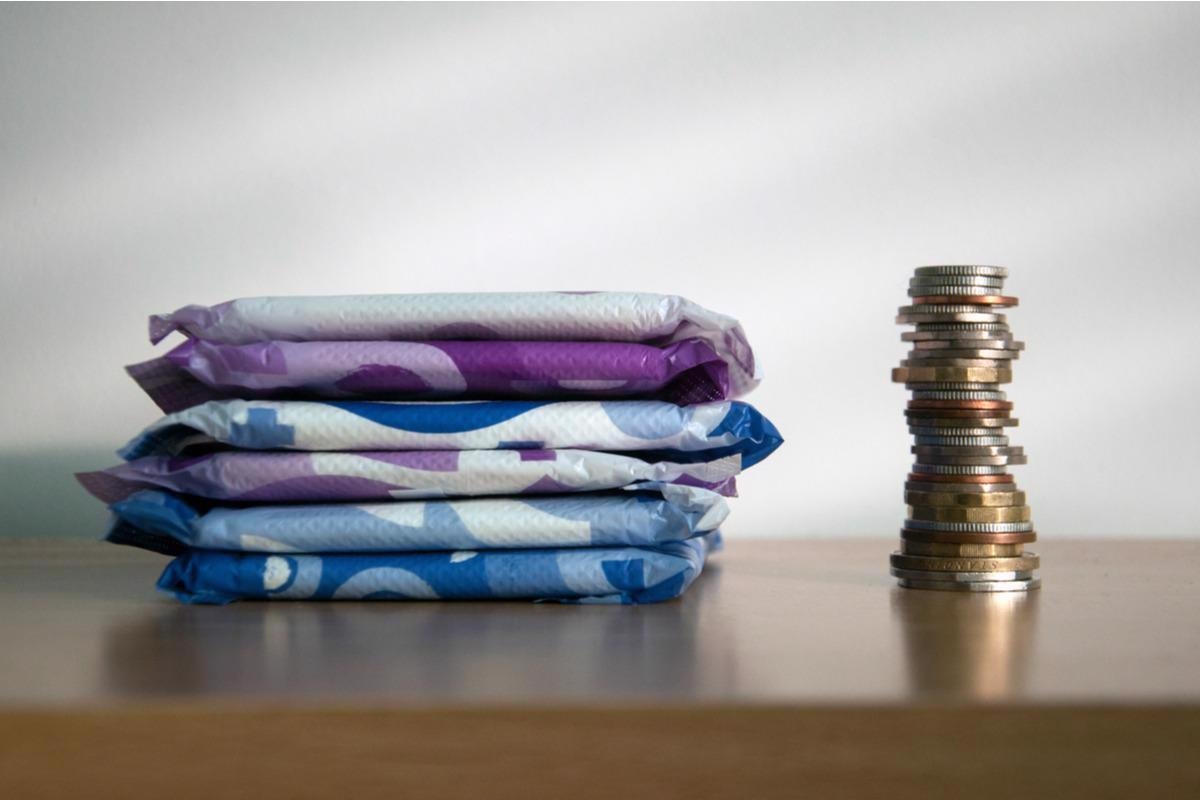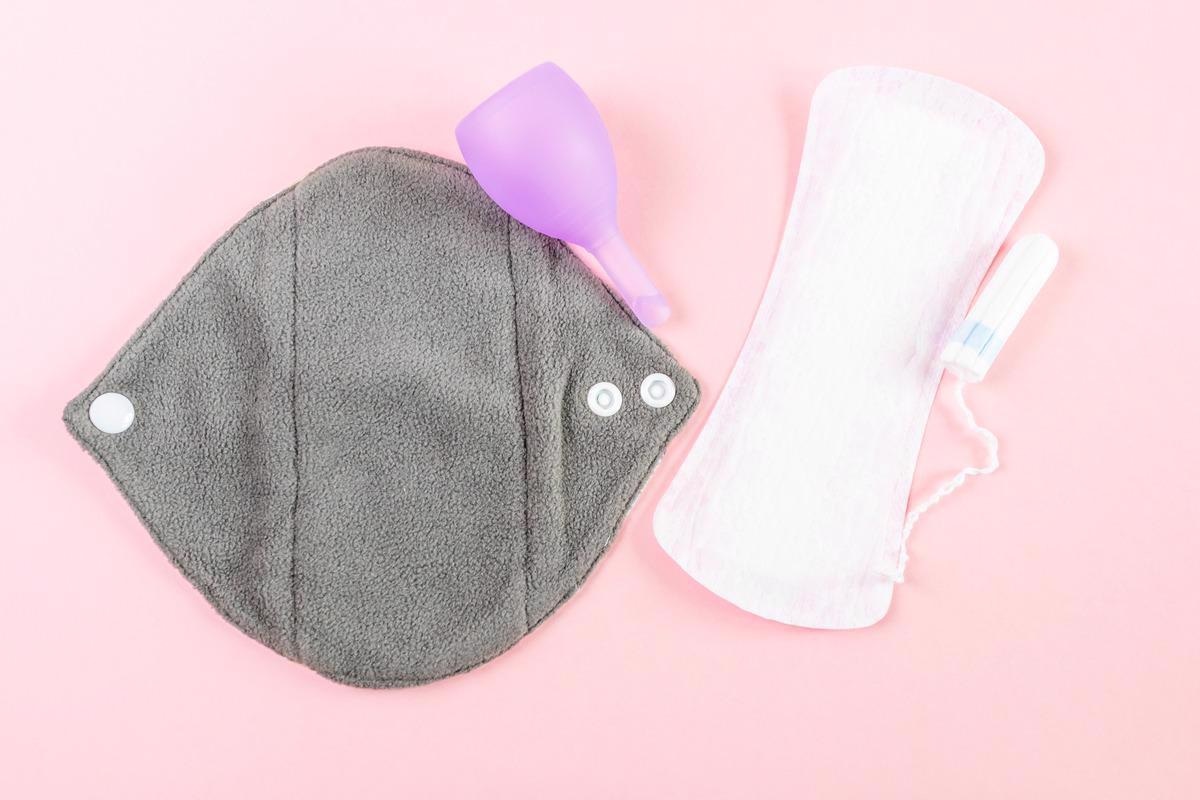My name is Marni Sommer, and I'm an Associate Professor of Sociomedical Sciences at the Mailman School of Public Health at Columbia University. Since I joined the faculty in 2008, I have been working on the issue of menstruation and exploring how periods impact people's lives.
In the early years, I looked at the issue from the perspective of students in school, particularly in Africa and Asia, and how getting their period and reaching puberty might impact their ability to engage in the classroom and go about their daily lives. Over the years, I expanded and started to look, along with my team and other colleagues around the world, at the issues facing girls and women in humanitarian contexts.
A few years ago, we turned our attention to the United States. We started to look at the issue of homelessness in New York City and explore the experiences of those who menstruate and are living in shelters or on the street, to understand if there are challenges around managing their periods. We also began to do research with low-income girls across the USA to understand their experiences around their periods and what information they may or may not be getting about menstruation as they are growing up.
Regarding my current work, I started to think about it in March/April of 2020 when we were all stay-at-home. As I was working from home and thinking about periods, I wondered how those who were menstruating across America were managing their periods from a few different perspectives. First, I wondered, "are those with periods able to find places to manage and change and bathe as they need to, or is it very crowded and uncomfortable because they no longer have much privacy with so many people staying home?" and second, "There are shortages of period products in stores, maybe there's some price gouging, how are people able to get the supplies they need during this very challenging time when they don't feel safe going out?" The third thing I thought about is the ongoing menstrual stigma and shame around this issue that might be keeping people from asking for whatever product support or privacy they needed.
What is meant by the term "period poverty," and how does it affect the health and wellbeing of those who menstruate?
When most people use the term period poverty, they are talking about the inability to afford or access period products when you need them, as you need them, whatever your regular or irregular menstrual cycle experience might be. Many of us working in this space like to broaden period poverty to include the inability to access underwear, soap to wash stains that get on your clothing, and toilets during the daytime and nighttime. You need to be able to launder your clothes, to understand what's happening to your body, meaning receive menstruation education and guidance, and not feel embarrassed and ashamed about this very natural experience.
At the simplest level, period poverty impacts people's ability to go about their daily lives, which, in turn, potentially impacts their sense of self-worth, dignity, self-esteem, and mental health, including anxiety. At a more significant level, if you cannot go to the office and work, or you cannot go to school, that brings on other levels of stress. And if you are living in a humanitarian context, and are unable to go line up to get the food or get the water that you and/or your family need because of a lack of menstrual materials or inability to change as needed, then it starts to have other repercussions on your health and wellbeing.
How did you study the effect of the pandemic and its economic consequences on menstrual health and hygiene?
In collaboration with my colleagues at Columbia University, along with Andrew Maroko, Penny Phillips-Howard, and a team at the CUNY School of Public Health, we came up with a series of questions that looked at whether people's ability to manage their period had changed since the start of the pandemic and added them to the CHASING COVID National Cohort Study led by CUNY. By the time our questions went out, it was in the third wave of data collection in October, so about 7-8 months into the pandemic in the USA. We asked questions about whether the pandemic had impacted their stress and anxiety levels and if they'd sort of used makeshift materials at any point. The CHASING COVID National Cohort Study also collected data on people's income levels, educational levels, racial/ethnic background, where they lived, etc.

Image Credit: Lisa_A/Shutterstock.com
Period poverty has been a global issue for many years. What did your findings tell us about how the COVID-19 pandemic exacerbated this issue further?
Period poverty has been an issue recognized globally. But we didn't know it was going on in America, and aside from one or two studies, we lacked good data on this issue. This study gave us some really solid data from the nationally surveyed women. The main overarching finding was that those who experienced income loss due to the impact of the pandemic struggled to afford/access period products. The second thing we found is that those women who, at baseline (March of 2020), were already low-income or had lower educational attainment were more vulnerable to struggling to access products throughout the pandemic.
The U.S. Has a Period Poverty Crisis
In your study, you mention the social implications of menstrual product insecurity, including a loss of dignity or confidence. How can we help tackle period stigma as a society?
We can start to bring it into the mainstream and take it away from this place of secrecy. The number one we can do is something a colleague used to always say, and that is to, "Break the silence." But I think that will only get us so far. If we want to address people's dignity and comfort around this issue, and if we focus on products, they need to be perceived as essential items. That may mean in times of crisis, they are built into social response, whether that's via food banks or subsidizations that people get in terms of economic support.
The longer I work in this field, the more I realize this is an issue of equity and gender discrimination. If an establishment has toilet paper, it should also have period products because they are essentially just as important.
A significant finding was that changing products less often and resorting to makeshift materials was associated with lower educational attainment. How important is it to recognize the link between education and period poverty?
It can be confusing because it's not necessarily the education that is the reason why they're using makeshift products; the lower educational attainment level puts them at a disadvantage for economic improvement in their lives and higher incomes. There is a separate issue around menstruation education and making sure girls and young people know what's happening in their bodies and feel empowered and confident about their periods.
We're talking about people who are economically disadvantaged or who, because they're economically disadvantaged or are living in neighborhoods or communities that don't have as ready access to affordable and quality products. That can go from people living in a city where there aren't good shops with affordable, decent products or they have products that are not affordable, or too costly for people living in shelters who are experiencing homelessness. In such places, the available products may be poor-quality, or there may be a gatekeeper who monitors how many they get and what type they get. That's incredibly embarrassing. It's really about the income inequities, and educational attainment is just a proxy for that reality.
What sort of health and social policy strategies are required to improve the current state of period poverty in the US?
In the US, efforts have started to be made to remove taxes on pads and tampons or period products. In a select number of states and cities in America, we have policies that mandate the provision of period products in public schools, for incarcerated individuals, people in shelters, and those experiencing homelessness. That is a great start. However, we also know that such policies may not be adequately implemented or enforced to the degree that the policy has articulated. There may also not be an adequate budget to implement the policy. Lastly, many of the existing policies only address those three particularly vulnerable populations and not, for example, low-income women or other people with periods who may need products and aren't in one of those three categories.
At the beginning of the pandemic, a COVID-related bill was passed that enabled women to access products with their flexible spending accounts for health. Some people point out that although it was great to have menstrual products included, you still have to be someone who has a flexible spending account; and you have to have money to buy products in the first place to get the money back from that kind of legislation.
There is also a really committted congresswoman from Queens, New York, named Grace Meng, who tirelessly presents a menstrual equity bill at the federal level every year. Each year, she brings it forward, and each year, it does not pass. However, even if it never passes, the benefit of her persistence is that pieces of what she argues should be legislation may get pulled out and written into other bills.
With the recent popularity of reusable menstrual products amongst those trying to be more eco-friendly, how may such sustainable products also help those facing menstrual product insecurity?
Often, the reusables are actually more expensive. However, the argument is that although they may be more expensive up front, you don't have to keep buying disposables so that in the long run, it ends up saving you money. We heard about people receiving reusables during the pandemic and trying them out for the first time, either through donations or purchasing them, and it was a mixed response.
I think while it would be wonderful for disadvantaged populations and/or the environment if everybody shifted to reusables, I'm a little wary of advocating that it is what needs to happen because there may be reasons some people cannot or will not use the reusables. For example, they may find that reusable pads move around too much or don't feel comfortable, or they may have adequate privacy for washing and drying them. Or they simply may not like wearing them.

Image Credit: kholywood/Shutterstock.com
What does menstrual equity mean to you?
Menstrual equity would mean we don't have to do this work anymore. It would mean it's not an issue, which doesn't mean erasing periods, taking away the beautiful, natural experience of getting your period. But it would mean everybody has the supplies and materials they need. It would mean people have supportive bathrooms, and they're getting information about their bodies and feel supported when they get their first period. It would mean that they have access to the healthcare they need when they have menstrul disorders or discomfort, and the sense of shame or the negative restrictions on people's lives related to menstruation would have been eliminated.
What are the next steps for you and your research?
We recently finished collecting data using a COVID-friendly method of capturing anonymous narratives online from women in Kenya who have lived with endometriosis for a long time. We partnered with the Endo Sisters East Africa Foundation, and we will soon be looking at the data that came in. We asked the women to respond to one of two prompts. One option was to share the journey of their diagnosis, which is often far longer than it should be. The second option was to describe how having endometriosis has impacted the daily, social and physical aspects of their lives.
Another thing we're hoping to do is investigate the real challenge around access to public toilets in a city like New York and in other cities around the world. We all need toilets for managing periods, and we should be doing a better job in making sure that everybody, not just those living on the street, has ready access to clean, safe period-friendly bathrooms when they need them.
Where can readers find more information?
About Professor Marni Sommer
Marni Sommer, DrPH, MSN, RN, has worked in global health and development on issues ranging from improving access to essential medicines to humanitarian relief in conflict settings. Dr. Sommer's particular areas of expertise include conducting participatory research with adolescents, understanding and promoting healthy transitions to adulthood, the intersection of public health and education, gender and sexual health, and the implementation and evaluation of adolescent-focused interventions. Her doctoral research explored girls' experiences of menstruation, puberty and schooling in Tanzania, and the ways in which the onset of puberty might be disrupting girls' academic performance and healthy transition to adulthood.
Dr. Sommer presently leads the Gender, Adolescent Transitions and Environment (GATE) Program, based in the Department of Sociomedical Sciences. GATE explores the intersections of gender, health, education and the environment for girls and boys transitioning into adulthood in low-income countries and in the United States. GATE also generates research and practical resources focused on improving the integration of menstrual hygiene management and gender supportive sanitation solutions into global humanitarian response.